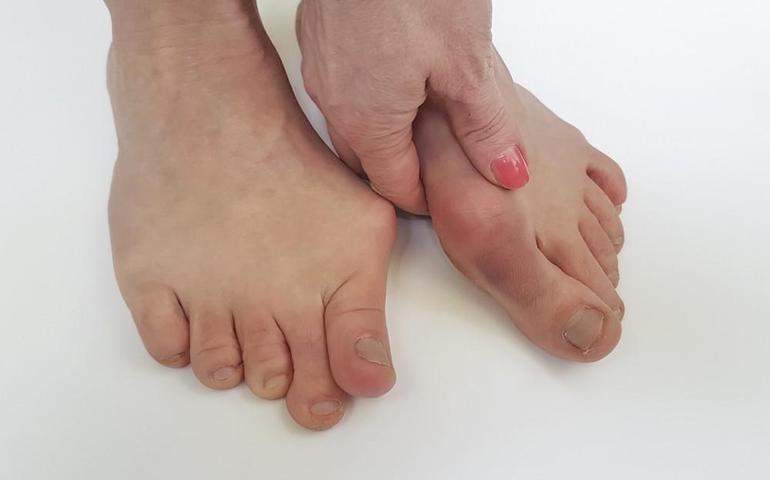The Centers for Advanced Orthopaedics is redefining the way musculoskeletal care is delivered across the region with locations throughout Maryland, DC, Virginia and Pennsylvania.
Tips for Determining a Course of Treatment for Bunions

Do you have a bunion deformity or other problems that have developed from the bunion? Problems such as:
- Pain in the ball of foot beneath the second toe.
- Second toe deformities such as hammertoe or crossover toe.
- Or even generalized foot pain from altered gait mechanics.
These symptoms are often related to bunions as the primary cause. Treatment options for these problems are well-defined.
Nonoperative management includes:
- Wide toe box shoes.
- Taping or bracing of the second toe.
- Foot strengthening exercises.
All of these do not prevent the progression of the deformity, the development of arthritis, and are well-documented to be associated with increases in symptoms over time. Surgical treatment to correct and stabilize the deformity and treat the secondary problems, however, has shown success. In a 2001 study in JAMA entitled "Surgery vs. Orthosis vs. Watchful Waiting for Hallux Valgus: A Randomized Controlled Trial," the results of this study demonstrated that after one year patients treated by surgery had significant pain relief. Those treated nonoperatively were either no better or worse in terms of the patient's own perspective and documented equal or higher pain scores.
The longstanding approach of "don't do surgery until you can't stand it any longer," is not supportable. Recurrence rates of bunion deformities have dropped so significantly with advances in surgical procedures and rigid fixation options that recommendations have changed. Surgery should be performed when patients report symptoms.
Minimally Invasive Bunion Surgery
The good news is there are minimally invasive surgical options for treating bunions. Dr. Steven Neufeld has developed an innovative new bunion procedure that offers less pain and faster recovery than traditional procedures. Dr. Neufeld is a board-certified foot and ankle orthopedic surgeon and was recently name a Washingtonian Top Doctor! Contact us today to learn more about Dr. Neufeld and to see if you are a good candidate for minimally invasive bunion surgery.